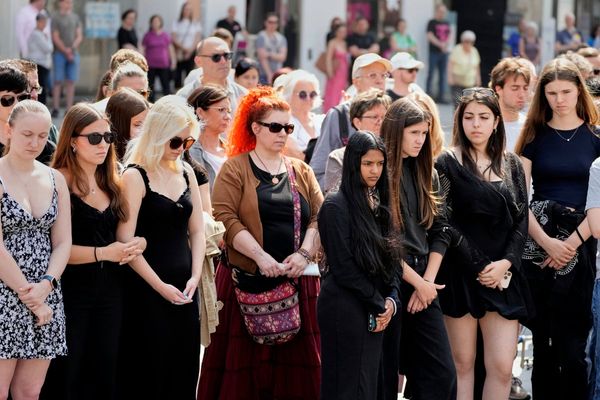Every single day, thousands of people around the world use dating apps to strike up conversations with strangers, with the supposedly mutual objective of finding a partner. However, placing blind trust in others’ intentions is the first mistake that many users make – the person on the other side of the screen might not actually be in search of true love, or anything resembling it.
In fact, several studies have highlighted that people use dating apps for all manner of reasons, ranging from conversation to just nosing around other profiles. When it comes to dating apps, the quest for true love is evidently the last thing on many people’s minds.
Far from a utilitarian matchmaking tool, dating apps more closely resemble a classic children’s story, filled with conniving characters and emotional challenges. It is a world populated by cunning wolves, duplicitous trails of breadcrumbs, and ghosts that mysteriously vanish into thin air.
Leer más: Why we've fallen out of love with dating apps
The lying wolf
In our story, the wolf lurks in the depths of the dating app forest. Much like the hungry wolf in Little Red Riding Hood, this wolf hides behind a veil of deception – studies have found that during the initial phase of dating a person online, an average of around 7% of the information revealed is untrue.
People often fall back on lies to make their profile seem more interesting, or to avoid awkward conversations. While in children’s stories the truth always comes out, it can be much harder to distinguish fact from fiction on a dating app, and many users become jaded and sceptical once they’ve been deceived. A bad start to any relationship.
The breadcrumb trail to nowhere
In this story, many of us venture into a forest filled with breadcrumbs that mark the way. Unlike in Hansel and Gretel, these are not left to mark the path home, but rather to keep victims helplessly trapped in an intricate emotional maze.
The practice of “breadcrumbing” involves showing sporadic, irregular signs of interest without any real commitment to moving a relationship forward. Somebody that sparks your initial interest might leave these signals from time to time – a message here, a like there – in order to keep some kind of hope alive, but they never offer anything more. Those who follow the trail often find themselves lost, unsure of what to expect at any turn.
According to a study, around 35% of dating app users have been either a perpetrator or victim of breadcrumbing.
It is also anything but harmless. Breadcrumbing leaves its victims feeling trapped in a tangled web of emotion, one that is difficult to get out of unscathed. Other studies have shown that as breadcrumbing continues over time, people can experience lower life satisfacation and greater feelings of loneliness and helplessness, especially when they realise that their “breadcrumber” has no intention of taking their relationship any further.
Leer más: The emotional toll of dating apps and why they're no longer about finding love – podcast
Disappearing ghosts
In this modern retelling, we also find ghosts who, just like their classical counterparts, have a habit of vanishing without a trace. This sudden disappearance is known as “ghosting”.
Repeated or sustained interactions on a dating app can raise expectations, so when someone is ghosted they can often find themselves feeling abandoned and uncertain, with little clue as to what happened to them, or why. This bewilderment can, on occasions, have a profound emotional impact.
We can draw parallels to another storybook moment here: the magical match between Cinderella and her prince. Upon meeting they both feel an instant, powerful attraction, much like how two people might feel when they first start chatting on a dating app. Cinderella then “ghosts” the handsome prince, leaving him with nothing more than a glass slipper and a vague sense of confusion. Luckily for the prince (and thanks in no small measure to his dogged efforts) the story ends well and love prevails.
In the more modern tale of of dating apps, ghosting doesn’t usually end with the protagonists living happily ever after. One study reported that around 20% of users had either ghosted someone, or been a victim of ghosting.
Leer más: Dating apps could have negative effects on body image and mental health, our research shows
The quest for serious, dependable love
Lying wolves, breadcrumb trails and fickle ghosts are just some of the challenges that dating app users have to face. They can all leave victims feeling sceptical, cynical, frustrated or confused, but it doesn’t need to be this way.
Much like in Cinderella, where the story carries on after the dance, meaningful relationships can be built in real life, through real interactions and honest, open conversation. Instead of vanishing, scientific studies have shown that people find a greater sense of connection and authenticity by investing time and effort in developing relationships that go beyond the superficial level. By doing this, they build the foundation on which to construct their own love story.
It is estimated that among young adults, two thirds of romantic relationships begin as friendships. Much like in children’s stories, where people grow close before finding true love, a solid relationship is built on mutual understanding, trust and communication. To reference another fairytale, let’s not forget how the Beauty and the Beast came to be together.
Above all, we have to remember that we are the protagonists in our own stories. It is in our hands to write the ending we want.
Jon Andoni Duñabeitia no recibe salario, ni ejerce labores de consultoría, ni posee acciones, ni recibe financiación de ninguna compañía u organización que pueda obtener beneficio de este artículo, y ha declarado carecer de vínculos relevantes más allá del cargo académico citado.
This article was originally published on The Conversation. Read the original article.







